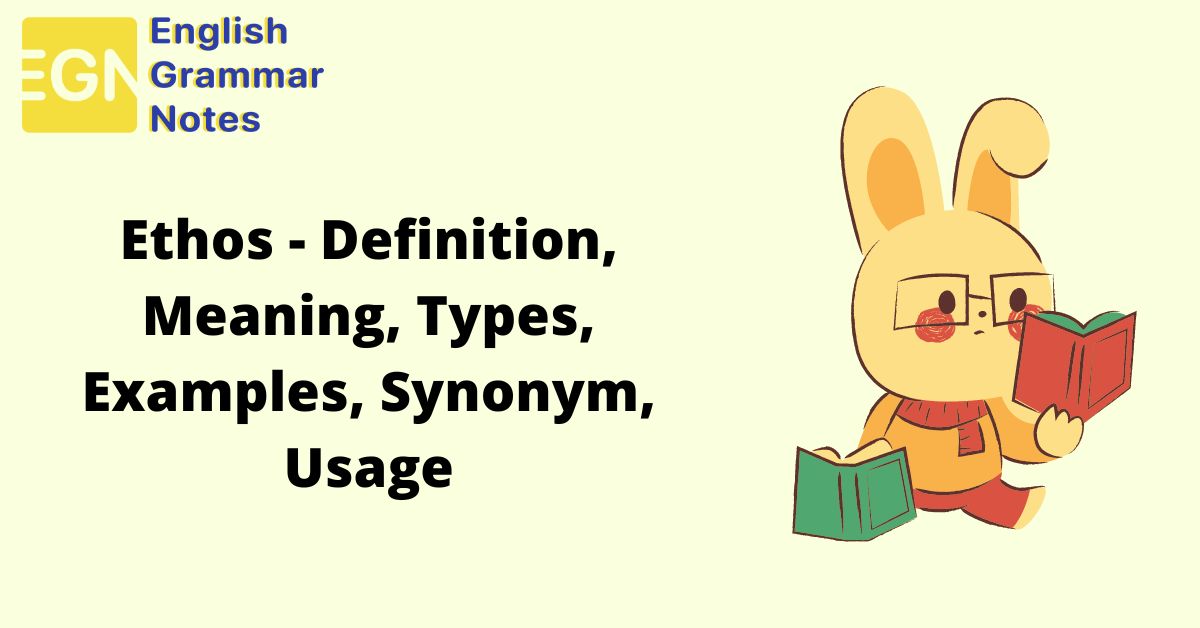Ethos is a valuable device in literature as well as rhetoric and other forms of writing. It is an inevitable part of any good piece of writing. Ethos has its roots in the Greek word ethos, which means “moral character”. In this article, you will be introduced to all the essential information about ethos, including its definition, examples, significance, characteristics, etc.
What is Ethos?
The idea of ethos was first conceived by the Greek philosopher Aristotle in his work, Rhetoric. Ethos is an element of argument with which you can establish credibility, knowledge, and a good moral character. It is a device that can be applied to writing and public speaking. Almost all writers employ ethos to a certain extent so as to establish their authority on a given subject and to build trust with readers.
Study the most important English Vocabulary Words identified by our experts and learn the right vocabulary to use in your day to day conversations
Pathos, Ethos, and Logos
Aristotle, the ancient Greek philosopher, introduced three kinds of rhetoric that aid in effective speaking and writing. These are pathos, logos, and ethos.
- Logos appeal to logic. It involves a detailed approach to rhetoric. Logos is devoid of pathos or emotions. When you add pathos to logos, the argument becomes more effective.
- Ethos appeals to ethics. As a writer, you should have appropriate knowledge of the subject. Ethos is helpful in building trust with an audience.
- Pathos is used to evoke emotions in the reader.
Three Elements of Ethos
Aristotle says there are three components of ethos that a speaker or writer needs to use when making an ethical appeal:
- Phronesis refers to the wisdom or intelligence you have as a writer. Your general aptitude and ability will build trust in the readers. Make sure to demonstrate your knowledge of the subject area by highlighting significant facts.
- Refers to the moral virtue or charity of your argument. Ethos is mainly employed to explain the morality of your argument. Never assume that a reader agrees with your opinions. Explain properly how you arrived at your conclusion and why you consider it just and moral.
- Eunoia refers to the goodwill you establish with the audience. Building trust with your readers is important. It is necessary to explain the background of your argument and build trust in your reader.
Also read,
Purpose of Using Ethos
The use of ethos has various benefits. These include:
- His use of ethos convinces his audience of his argument.
- This helps to build trust in the readers.
- It helps to present your opinions in an appealing manner.
- Through the use of ethos, you can convince the audience that agreeing with his argument is “good” and “right.”
FAQs on Ethos
Q1. What is Ethos?
Ans: Ethos is an element of argument with which you can establish credibility, knowledge, and a good moral character.
Q2. What are the three elements of ethos?
Ans: The three different elements of ethos include phronesis, arete, and eunoia.
Q3. What are the benefits of using ethos?
Ans: The use of ethos has several benefits. Using ethos helps you to easily convince the readers. Ethos is also an important element in building the reader’s trust. It also helps you present your ideas in an appealing manner.
Q4. Distinguish between pathos and ethos:
Ans: Pathos is used to incite emotions in the readers. On the other hand, ethos is used to establish knowledge and credibility. Ethos appeals to ethics.
Conclusion
Ethos plays an important role in literature. It is an appropriate device that can be used to build trust in readers. The use of ethos will help in presenting your views. Understanding what ethos is and its functions will surely help you grab the attention of readers. However, be sure not to engage in the overuse of ethos, as this will lead the readers to lose interest.
